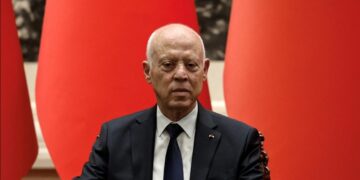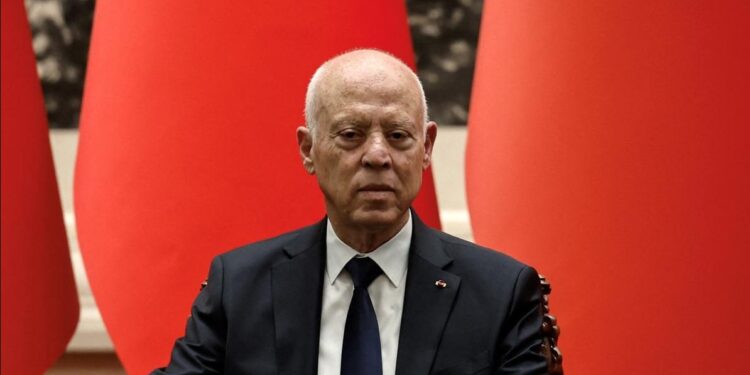By Enyichukwu Enemanna
Tunisian authorities have urged European countries to increase financial assistance to the country and others to help tackle the escalating migration crisis, especially inflow of the sub-Saharan Africa.
The country has battled a surge in the number of migrants from other countries trying to travel to Europe in an attempt to flee poverty and hunger in most perilous means.
Heritage Times HT reports that the country has become a corridor for Africans attempting to find their way to Europe in search of greener pasture through dilapidated boats, a journey that oftentimes result to high number of casualties in the Mediterranean.
According to the Tunisian National Guard, the country in 2023 intercepted more than 75,000 people on the move while they were attempting to enter Europe via the Mediterranean Sea route to Italy.
This figure is more than double the number in 2022.
Thousands of migrants are now located in towns around southern Tunisia, including Amra and Jbeniana.
Many of them are fleeing economic conflict in countries around Africa and the Middle East, hoping for a better life in Europe, if they are lucky to find their way.
“More assistance must be provided to countries such as Tunisia. The aid provided is insufficient to address the problem”, Tunisian Prime Minister Ahmed Hachani told a migration conference in Tripoli, Libya.
He said Tunisia was a victim country and was exhausting its public finances on efforts to deal with the migration crisis, which is an additional burden for a government that was already facing other problems.
“There are towns that have absorbed migrants beyond their ability,” he said, referring to Amra and Jbeniana.
Heritage Times HT recalls that European Union had in March disbursed 150 million euros ($164 million) to Tunisia as budget support for financial stability and economic, as part of a deal aimed at fighting illegal migration.
“There has been money spent for 10 or 50 years on this problem, and this problem has not been solved,” Libyan Prime Minister Abdul Hamid Al-Dabaiba told the conference.
“This money must be spent there (in the countries of origin) and not in detention camps, whether in Libya or Europe.”
In May, International Organization for Migration (IOM) said as of January 2024, there were more than 706,000 migrants in Libya.
Libyan Interior Minister Emad Trabulsi said, however, that Libya was hosting 2.5 million refugees.
Italian Prime Minister Giorgia Meloni told the conference that the situation could not be resolved without tackling the problem in the countries of origin.
Tunisian President, Kais Saied had last year accused the European Union of not following through on agreements made earlier to help Tunisia patrol its borders, curb smuggling and balance its federal budget.
In rejecting a financial intervention from EU last year, the Tunisian leader called the disbursement “a small amount,” and noted that the decision to reject it was less about its size and more about how it “lacks respect.”




































